There are many ways to use affiliate marketing, but one way that has proven successful for ecommerce businesses is by promoting related products on their website or blog posts. The key here is to find an affiliate partner who offers high-quality products in your niche to know that visitors coming from the links will make purchases. This blog post will explain six tips to use affiliate marketing to level up your ecommerce.

1. Partner with a Trusted Network
To make money from your website or blog, you need traffic coming your way. For the affiliate links to work, you'll want as many people as possible clicking on them since they won't be clicked unless a potential customer is interested in the advertised product. The first step is finding an affiliate program with a high commission and low threshold, meaning that you earn more per sale than with other affiliate programs. The last part of the equation is to find a network you can trust by conducting some research on their advertisers. For example, if you sell baby products, do an Internet search for "best strollers" or "top brands of cribs." How are these items being sold? Please take note of the brands and companies that are advertising on these websites because they are likely to be trusted affiliates.
2. Define your Commission Strategy
When people place affiliate links on their website, many of them will neglect to mention that they earn a commission for each sale. This means that if you purchase the product with your own money, the blog owner still earns a commission. While this is entirely ethical and legal, it can be seen as misleading by readers who are not aware of this fact. Before you decide on which affiliate programs to join, decide on your commission strategy. You can offer a standard 5% commission rate, provide free products in exchange for reviews, or offer new customer discounts to encourage new sales.

3. Set a High Cookie Duration
The "cookie duration" is the amount of time that your affiliate tracking cookie stays on someone's computer. This means that if you offer a one-day cookie, then the person clicking on an affiliate link within those 24 hours should count as a sale since they will still be tagged with your affiliate id. However, some programs set concise cookie duration for affiliates. For example, some will only give you 24 hours to get the sale before the cookie expires, and it's considered invalid. This means that if someone clicks one of your affiliate links but doesn't buy anything right away, you could lose out on the commission completely since it won't be counted. You can set your cookie duration. To make things easier, tell your affiliate program to use the same cookie duration as Amazon since they are known for having some of the longest cookie durations in the industry.
4. Provide Promotional Materials
By offering promotional materials on your website, readers are more likely to buy products through affiliate links. There are many ways you can do this, such as pointing visitors towards a landing page that offers a discount for new sign-ups or placing images within your posts. You can place images in posts by using code from affiliate networks which will place an image in the body of your content. It's an image that links back to your affiliate program, so it counts as promotional material.
5. Leverage Coupon Websites
Coupon websites are a great way to earn extra money from affiliates. These sites offer promo codes for customers who are looking to save money on their orders. You can let your readers know about these coupons by writing an article or mentioning it in your social media feeds. If you receive any coupon codes, you can also give them away as giveaways in exchange for an email address. Since you are offering free stuff, the people who sign up will be more likely to purchase products in the future when they see your affiliate links.
6. Work with Influencers
Influencers can help market your product and bring in a flood of sales. If you have a popular blog, it's worth reaching out to smaller blogs and influencers on social media sites such as Twitter or Facebook. Offer them free products or discounted coupon codes if they mention the product through their website, YouTube channel, or Instagram profile. If you can create relationships with influencers, they will be more likely to work with you again in the future.

Conclusion
Affiliate marketing is a fun way to earn extra money on the side as long as you know how to leverage your affiliate programs properly. To do this, you need to practice proper SEO strategy, build niche-relevant content, and have a solid commission strategy in place. Since not all affiliate programs will be profitable for you, you should test out a few to see which ones work before committing to a long-term relationship with a specific company.






















.png)



.svg)




